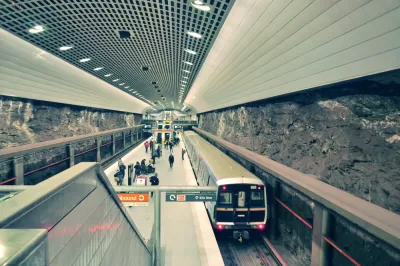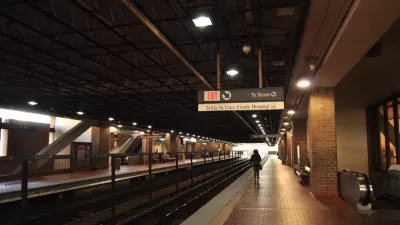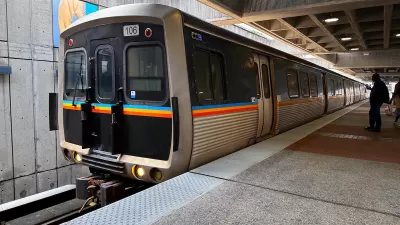Atlanta’s transit agency is slowing its plans to extend its bus and rail lines, prompting criticism from city officials.

The Metropolitan Atlanta Rapid Transit Authority (MARTA) is scaling back its expansion plans despite a voter-approved ‘More MARTA’ sales tax passed in 2016, writes Maria Saporta in the Saporta Report. The agency revealed that it plans to complete nine projects by 2028, with only one of them, the expansion of the Atlanta Streetcar, being a rail project. This is in sharp contrast to previous plans—in 2016, MARTA had as many as 70 projects in the pipeline. Saporta adds that the agency has downgraded some planned light rail lines to bus rapid transit (BRT), a move the agency says will save money and time.
While the agency has collected $394.8 million from the More MARTA tax, roughly 46 percent has been spent on bus operations and enhancements, despite an early projection that just 10 percent of revenue would go toward bus enhancements.
The article details frustration from city leaders with the slow pace of MARTA’s expansion. Councilmembers are calling on MARTA to return funds to the capital funding pool, and Mayor Andre Dickens replaced two MARTA board members in a sign of disapproval. “It’s important for me, the City Council and the public to say: ‘MARTA, we want to see projects delivered. We want to see Campbellton Road BRT completed soon. We want to see the Summerhill BRT, completed soon. We want to see Metropolitan and Cleveland Avenue projects completed, and we want to see these things done on time and on budget,” Dickens said.
FULL STORY: Less is less with More MARTA projects

Maui's Vacation Rental Debate Turns Ugly
Verbal attacks, misinformation campaigns and fistfights plague a high-stakes debate to convert thousands of vacation rentals into long-term housing.

Planetizen Federal Action Tracker
A weekly monitor of how Trump’s orders and actions are impacting planners and planning in America.

In Urban Planning, AI Prompting Could be the New Design Thinking
Creativity has long been key to great urban design. What if we see AI as our new creative partner?

King County Supportive Housing Program Offers Hope for Unhoused Residents
The county is taking a ‘Housing First’ approach that prioritizes getting people into housing, then offering wraparound supportive services.

Researchers Use AI to Get Clearer Picture of US Housing
Analysts are using artificial intelligence to supercharge their research by allowing them to comb through data faster. Though these AI tools can be error prone, they save time and housing researchers are optimistic about the future.

Making Shared Micromobility More Inclusive
Cities and shared mobility system operators can do more to include people with disabilities in planning and operations, per a new report.
Urban Design for Planners 1: Software Tools
This six-course series explores essential urban design concepts using open source software and equips planners with the tools they need to participate fully in the urban design process.
Planning for Universal Design
Learn the tools for implementing Universal Design in planning regulations.
Appalachian Highlands Housing Partners
Gallatin County Department of Planning & Community Development
Heyer Gruel & Associates PA
Mpact (founded as Rail~Volution)
City of Camden Redevelopment Agency
City of Astoria
City of Portland
City of Laramie





























